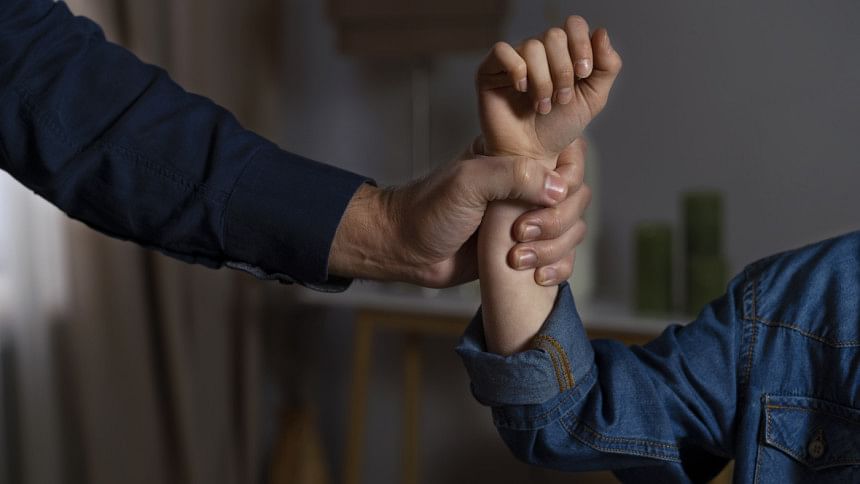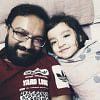Parental neglect may create uncaring children

"Villains are not born; they are created"—this saying contains a profound reality that defies the conventional tales we frequently accept without inquiry. In civilisations where filial responsibility is highly engrained, children who abandon their parents are viewed as ungrateful, uncaring, and cruel. The idea of an elderly person bemoaning that their offspring have sent them to a nursing facility elicits both pity and fury, with blame nearly invariably focused on the children. But rarely do we pause to consider what caused this separation. Why would someone willingly cut ties with the folks who raised them?
The emotional weight of such stories lends itself to painting a one-sided image in which the elderly are always victims and their children are the villains. It is awkward, if not unsettling, to consider that the story could be more complex. Perhaps the adult who now refuses to care for their elderly parents was once a helpless child who suffered years of mistreatment, neglect, or abuse. In our culture, parental power is unquestionable. Questioning it is frequently met with opposition, with the belief that a parent has an unassailable right to discipline their child how they see fit. However, this discipline often crosses the line into abuse, leaving long-lasting psychological scars.
There is a troubling pattern that repeats itself across generations. A child who grows up in dread of their parents may show respect, but is unlikely to truly love them. The bruises, harsh words, relentless belittlement, and smothering control do not form connections of affection; rather sow seeds of resentment that blossom over time. A parent may believe that rigorous punishment is in the child's best interests and that obedience and submission demonstrate good parenting. But obedience born out of fear is fleeting—it lasts only until the youngster is old enough to flee. Once free of parental influence, they have to decide whether to forgive and continue the relationship, or to walk away and heal on their own terms.
This takes us to the disturbing reality that many people refuse to acknowledge. The same parents who feel betrayed and abandoned in old age may have once betrayed their own children's trust. Social media videos of a father verbally abusing his child or a woman beating hers in a fit of rage serve as a harsh reminder of this. It is a picture that is all too typical in homes where physical punishment is acceptable. Society dismisses it as "strict parenting" or "necessary discipline," but how does it seem from the child's perspective? To them, punishment is brutal, and lack of affection is a reminder that their feelings are unimportant. Years later, when that same child chooses to create distance from their parents, society will rush to condemn not considering the suffering that led to their decision.
Nobody is born with resentment toward their parents. A youngster seeks love, stability, and warmth. Upon receiving these, they will develop into adults who naturally reciprocate care. However, if they grow up in terror, constantly walking on eggshells to escape punishment, they will see their parents are oppressors rather than guardians. They learn that love in their home is conditional and that they are only valued upon compliance without question. This awareness eventually hardens into emotional detachment. And one day, when the roles are reversed and the parents are in need, they may be met with the same indifference they once demonstrated in response to their child's anguish.
This does not imply that all the children who distance themselves from their parents are justified. There are several cases where children, despite being nurtured with love, care, and sacrifice, turn their backs on their ageing parents out of selfishness, greed, or outright disregard. In every community, there are those who regard their parents as burdens rather than people who commit their lives to raising them well. Many families have children who disrespect their parents from adolescence to maturity, take advantage of their goodwill, and forsake them when no longer needed. They are not acting out of trauma or pain, they are just heartless. Some people abandon their elderly parents without a second thought, refusing to check on them. Others take advantage of their parents financially, only to abandon them when they have nothing more to give. These people taint the actual hardships of those who have endured at the hands of abusive parents, making it more difficult for society to discern between justifiable alienation and simple neglect. In such circumstances, the children, not the parents, have failed as human beings.
Every case of parental abandoning is not justifiable and not every parent-child relationship fits this pattern. However, this is an important point of view. In a society where children grow up reading the stories of Bayezid Bostami's devotion to his mother, we must question what went wrong that led some to do the exact opposite to their parents. Before blaming children for abandoning their parents, one must consider what prompted that decision. Love must be nurtured, not demanded. Respect cannot be forced upon a youngster; it must be gained through love and understanding.
The unfortunate truth is that many parents, in their desire for control, unintentionally shape their own fate. Loneliness in old age is not always the outcome of an ungrateful child, but sometimes of a child who was raised to believe that their grief was insignificant. And when that child is eventually given the opportunity to choose, they may choose a life free of the folks who caused them pain. The cycle of villainy in this case does not begin in maturity, but in childhood. Villains are not born; they are manufactured.
Md. Shawkat Alam Faisal is an apprentice lawyer at Bangladesh Bar Council.
Views expressed in this article are the author's own.
Follow The Daily Star Opinion on Facebook for the latest opinions, commentaries, and analyses by experts and professionals. To contribute your article or letter to The Daily Star Opinion, see our submission guidelines.

 For all latest news, follow The Daily Star's Google News channel.
For all latest news, follow The Daily Star's Google News channel. 









Comments